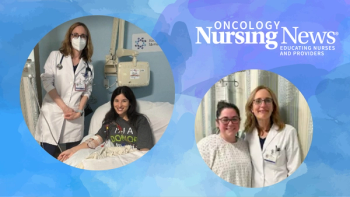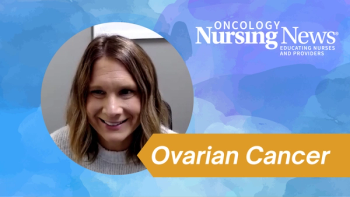
M. Tish Knobf on Nurse-Patient Communication Barriers
M. Tish Knobf, PhD, RN, FAAN, AOCN, from the Yale University School of Nursing, discusses communication barriers that nurses face when providing cancer patients with information regarding treatment and side effects.
M. Tish Knobf, PhD, RN, FAAN, AOCN, professor at the Yale University School of Nursing, discusses communication barriers that nurses face when providing cancer patients with information regarding treatment and side effects.
Most patients are unfamiliar with many of the terms used in an oncology setting to describe adverse events. As an example, patients may not understand what is implied by the term “cognitive changes;" however, studies have shown that patients want to know specifics about what will happen to their memory and ability to concentrate, Knobf explains.
As nurses discuss treatment options they need to be cognizant that many of the terms used may be unfamiliar. As an example, Knobf describes a study showing that “infusion” was an unknown term to some patients.
Overall, these examples emphasize the importance of giving detailed information in a format that patients can understand. This is important, since understanding what to expect may help ease symptom distress.
Newsletter
Knowledge is power. Don’t miss the most recent breakthroughs in cancer care.































































































